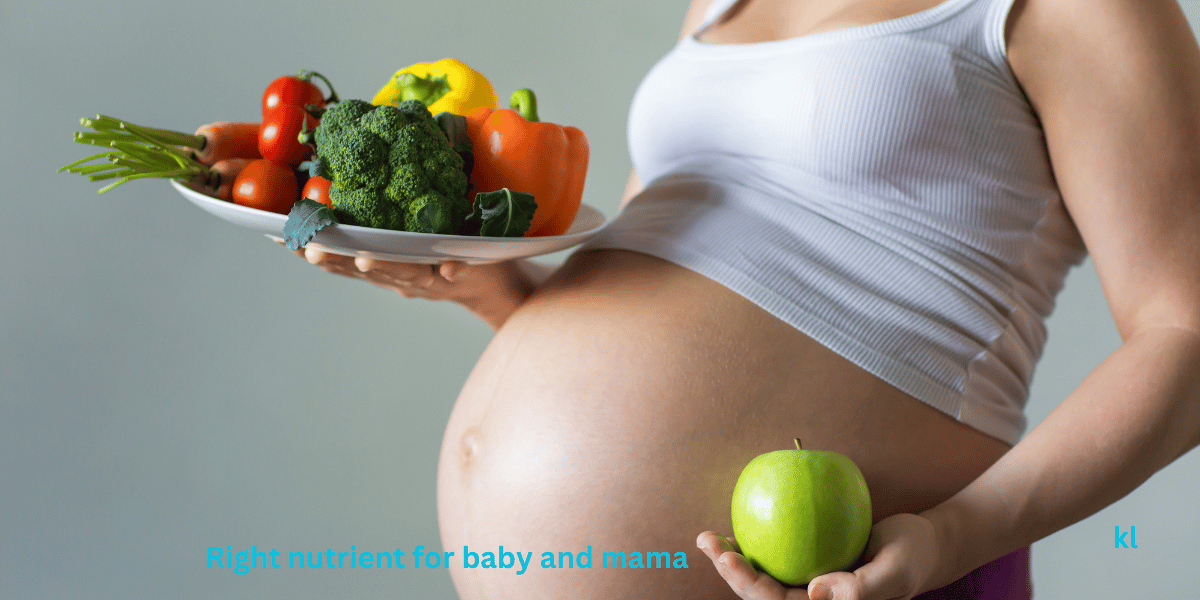Did you know that a significant percentage of women don’t meet the recommended intake for key nutrients during pregnancy? According to UNICEF, poor diets lacking in key nutrients can lead to low birth weight, which affects more than 20 million newborns every year. That’s right, folks. But don’t worry, I’ve got your back (and your bump).
In this guide, we’ll break down the essential nutrients for a healthy pregnancy: trimester by trimester, and explain how to get them through your diet or supplements.
Whether you’re just starting your journey or you’re in the last weeks, knowing what your body needs will make all the difference! Let’s dive into the must-have nutrients trimester by trimester.
First Trimester: Building the Foundation
The first trimester is a whirlwind of changes, not just emotionally but nutritionally too. It’s when your baby’s Fetal development starts kicking into high gear, so what you eat matters more than ever.
Trust me, I learned early on that setting the foundation for a healthy pregnancy begins with focusing on specific nutrients that both you and your growing baby need.
Let’s start with the superhero of the first trimester: folic acid. This one is non-negotiable in early pregnancy. I remember my doctor harping on about folic acid in pregnancy before I even saw those two pink lines. Folic acid is critical in preventing neural tube defects, which are serious birth defects of the brain and spine.
If you’re anything like me, getting enough from food alone was tough, so prenatal vitamins were a lifesaver. Foods like leafy greens, beans, and fortified cereals are great, but let’s be honest, it’s hard to keep track when you’re battling nausea and cravings. So pop that prenatal vitamin and you’ll have one less thing to worry about.
Next up, iron. I didn’t realize how vital this mineral was until my doctor explained it. Iron during pregnancy helps prevent anemia, which can make you feel even more tired than you already do (and we all know the first-trimester fatigue is real).
It also ensures that your baby’s developing circulatory system gets the oxygen it needs. If you’re low on iron, look for iron-rich foods like lean meats, spinach, and lentils. Pair them with citrus to help your body better absorb the iron.
Now, if you’re one of those people who deals with constant nausea—like I was—vitamin B6 might become your new best friend. Not only does it help ease morning sickness, but it’s also important for early fetal brain development.
Some prenatal vitamins include extra B6, or you can up your intake with foods like bananas, nuts, and fortified grains. It didn’t cure my nausea entirely, but it took the edge off those rough mornings.

We can’t forget about vitamin D either. It’s essential for strengthening your immune system and helping your baby’s bones and teeth start forming early on.
Vitamin D during pregnancy can be tricky to get from food alone, so if you’re not getting much sunlight, it might be worth talking to your doctor about supplements. I found myself adding more vitamin D-rich foods like fortified milk and fatty fish into my diet to cover my bases.
And then there’s protein—the building block of your baby’s cells. During the first trimester, protein supports rapid cell growth and tissue development. I made sure to snack on protein-packed options like eggs, Greek yogurt, and even nuts throughout the day.
It’s amazing how just a little extra protein made me feel fuller and more energized, especially on those days when I was dragging.
Foods to Focus On in the first trimester? Stick with leafy greens, fortified cereals, lean meats, and citrus fruits. These cover many essential nutrients for a healthy pregnancy, like folic acid, iron, and vitamin C (which helps your body absorb iron).
It’s all about keeping things balanced and simple. No need to stress over creating perfect meals—just focus on getting those nutrients in wherever you can.
Eating a healthy pregnancy diet doesn’t have to be complicated. Even if nausea limits your options, stick to nutrient-rich foods whenever you feel up for it.
And don’t forget that prenatal vitamins and pregnancy supplements fill in the gaps when life gets in the way. After all, the goal is to build a strong foundation for you and your baby. You’ve got this!
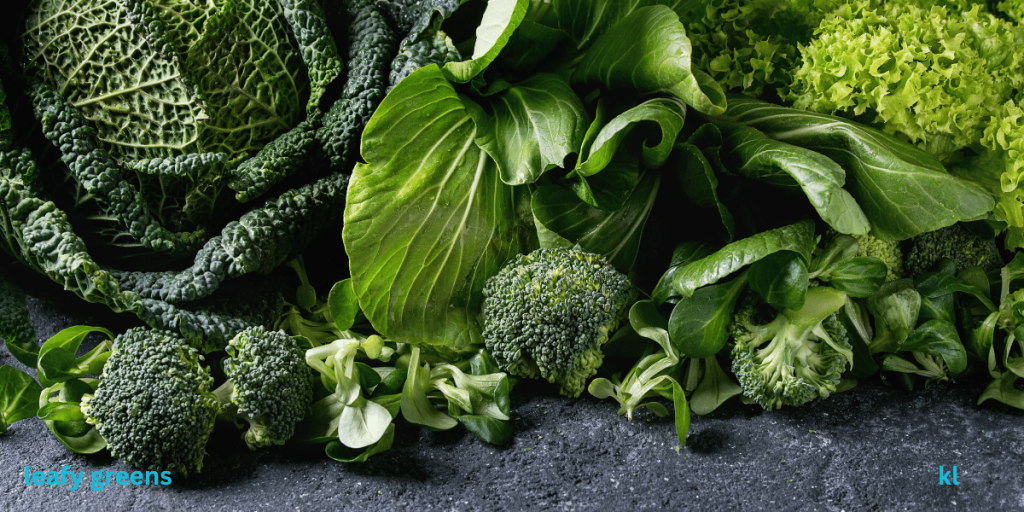
Second Trimester: Supporting Growth and Energy
Whew! Made it through the first trimester. Give yourself a pat on the back, mama! Now, welcome to the second trimester, or as I like to call it, the “Is this what feeling human again is like?” phase. Morning sickness usually eases up, and the baby bump starts to make an appearance.
But as your baby continues to grow rapidly, so do your nutritional needs. Essential Nutrients for a Healthy Pregnancy: Trimester by Trimester is key to ensuring that both you and your baby are getting what you need.
This trimester is all about supporting that growth and maintaining your energy levels. Let’s talk about the essential nutrients you’ll need to focus on!
First up: calcium. I can’t emphasize this enough—calcium during pregnancy is a game-changer. Not only is it critical for your baby’s developing bones and teeth, but it also helps maintain your bone density. After all, your body will prioritize the baby, so if you’re not getting enough calcium, your bones could suffer.
During my second trimester, I found myself loading up on dairy products like yogurt, cheese, and milk, and I even threw in some leafy greens like kale and broccoli. If dairy isn’t your thing, there are plenty of calcium-fortified plant-based milks too.

Next, there are omega-3 fatty acids, particularly DHA and EPA. These healthy fats play a massive role in your baby’s brain and eye development, which is ramping up during the second trimester. Fatty fish like salmon are one of the best sources of omega-3s, and I try to eat it at least once a week.
If you’re not a fan of fish, there are DHA supplements specifically made for pregnancy that are safe and effective. These come in handy if the smell or taste of fish still turns your stomach.
Magnesium is another nutrient you don’t want to overlook. I don’t know about you, but I was caught off guard by the sudden muscle cramps that popped up in the middle of the night. Magnesium helps prevent those pesky cramps and also supports healthy blood pressure.
For me, snacking on magnesium-rich foods like almonds, spinach, and pumpkin seeds throughout the day made a noticeable difference. Plus, magnesium is known to help with sleep, which, let’s face it, can be hit or miss during pregnancy!
We can’t forget about vitamin C either. Vitamin C supports your immune system, which tends to take a hit during pregnancy, and it also helps boost collagen production. Collagen is key for your baby’s developing skin, cartilage, and blood vessels.
Citrus fruits, bell peppers, and strawberries are fantastic sources of vitamin C. I would toss them into smoothies or just snack on them directly—they’re easy to grab when you’re on the go!
Now, about iron—yep, it’s still important! If you thought iron was crucial in the first trimester, it becomes even more vital in the second.
As your blood volume increases, you’ll need more iron to prevent anemia and keep both you and your baby healthy. Iron during pregnancy can be a little tricky to get enough of through food alone, especially if you’re not a huge meat-eater.
I made sure to include iron-rich foods like lean beef, lentils, and spinach in my meals, but I also paired them with vitamin C-rich foods to boost absorption. If your doctor suggests it, an iron supplement might be a good idea, too.
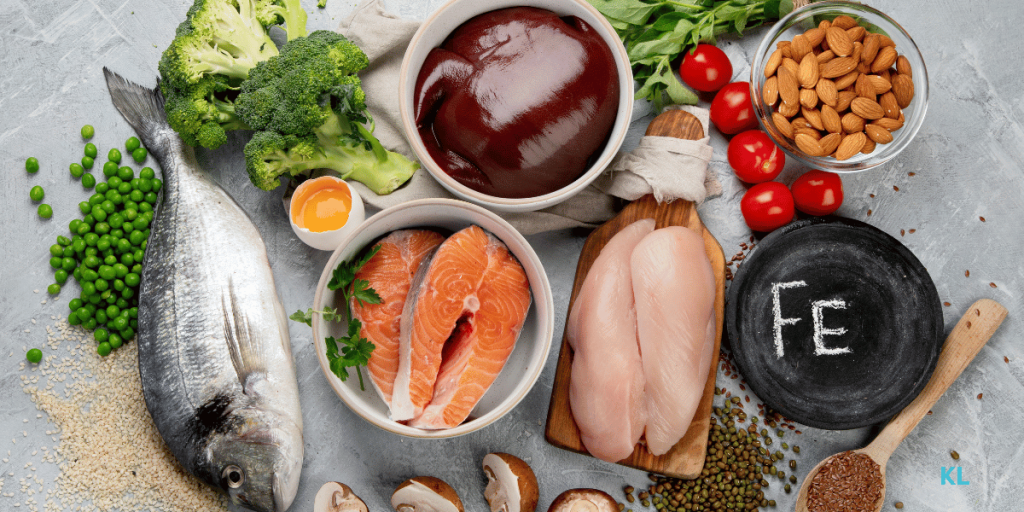
So, what should you be focusing on when it comes to food in the second trimester? Here’s what worked for me: dairy products for calcium, fatty fish like salmon for omega-3s, and plenty of nuts and seeds for magnesium.
Whole grains like quinoa and brown rice also kept me energized throughout the day. I’m a big believer in nutrient-rich foods for pregnancy—these are the superfoods that not only give you energy but also contribute to your baby’s overall development. And water! So much water to keep you hydrated.
One nutrient I didn’t know much about until I hit the second trimester was choline. It’s essential for brain development, and I found out that eggs are a great source of it.
Luckily, I love eggs, so incorporating them into my breakfast was easy. Eggs are one of the best sources of choline, so I made sure to eat them regularly, whether scrambled for breakfast or hard-boiled as a snack.
By this point, you might also notice a spike in your energy levels—hooray! That’s why it’s a great time to focus on energy-boosting foods like whole grains, nuts, and lean proteins.
These foods helped me power through the day, especially when my energy dipped around mid-afternoon. You can also engage in prenatal exercises to keep you feeling strong and energized—it’s a great way to support both your body and your growing baby!
Creating a pregnancy diet plan during the second trimester doesn’t have to be complicated. Focus on these nutrient-dense foods, and don’t be afraid to mix things up to keep meals exciting and varied.
This is the trimester where you can support your baby’s growth while maintaining your health and energy. You’re halfway there—keep going!
Third Trimester: Preparing for Delivery
You’ve made it to the third trimester—the home stretch! By now, things are getting real. Your body’s changing more than ever, and you’re probably feeling the weight (literally) of carrying around that growing baby.
This is the time to focus on Essential Nutrients for a Healthy Pregnancy: Trimester by Trimester, keeping yourself energized and healthy as you prepare for delivery.
Trust me, the right nutrients now can make a world of difference when it comes time for labor and recovery. So, what should you be eating during the third trimester?
Let’s start with vitamin K. It might not be the most talked-about nutrient during pregnancy, but it’s critical in the final stretch. Vitamin K is crucial for blood clotting, which is especially important as you prepare for delivery.
Your baby also needs it, as newborns often have low levels of vitamin K at birth, so it’s important to boost your intake now.
You can find vitamin K in foods like dark leafy greens (spinach, kale), and incorporating these into your diet is a great way to prepare for a healthy delivery. I’d toss some into smoothies or sauté them with a bit of olive oil—easy and packed with nutrients.

Next up, iron. Yep, you still need it! By this point, your blood volume is at its peak, and your iron needs are higher than ever.
Getting enough iron during pregnancy can help prevent anemia and ensure that you’re not battling extreme fatigue in these last few weeks. Iron also supports your baby’s healthy birth weight.
Pro tip: pair iron-rich foods with something high in vitamin C (like citrus fruits) to improve absorption.
Vitamin A is another key player during the third trimester, particularly because it helps support your baby’s lung development and plays a role in postpartum tissue repair.
Sweet potatoes, carrots, and spinach are some of the best sources of vitamin A, and they’re easy to incorporate into meals. I remember roasting up sweet potato wedges as a quick snack—they’re tasty and loaded with nutrients.
You might notice that your energy levels start to dip again in the third trimester, so this is where carbohydrates come into play. I’m not talking about sugary snacks, though (tempting as they are!).
Complex carbs like whole grains, oats, and quinoa are key to keeping your energy levels steady. Your body is working hard, and those carbs are going to help keep you fueled throughout the day.
Having small, frequent meals with a good balance of complex carbs and protein really helped me avoid that third-trimester slump.
Now, let’s talk about a few other essentials for your third trimester. Pregnancy weight gain management can be tricky as your body naturally puts on more weight to support your growing baby. But remember, it’s all about steady, healthy weight gain. Focus on nutrient-rich foods rather than empty calories.
I found it helpful to create a pregnancy meal plan that was loaded with whole foods—plenty of vegetables, whole grains, lean proteins, and healthy fats.

Also, staying hydrated is non-negotiable! Hydration during pregnancy is super important, especially as you get closer to delivery.
I kept a water bottle with me at all times and made sure to sip throughout the day. Dehydration can lead to Braxton Hicks contractions and general discomfort, so keeping those fluids up can help.
And let’s not forget about foods to avoid during pregnancy. By now, you’re probably well aware of the big no-nos like raw fish and deli meats, but it’s always good to double-check your diet.
I avoided anything that could potentially cause foodborne illness since the last thing you want in the third trimester is to deal with that while trying to grow a human.
By focusing on a healthy pregnancy diet with these key nutrients, you’ll not only feel better, but you’ll also be setting the stage for a smoother delivery and recovery.
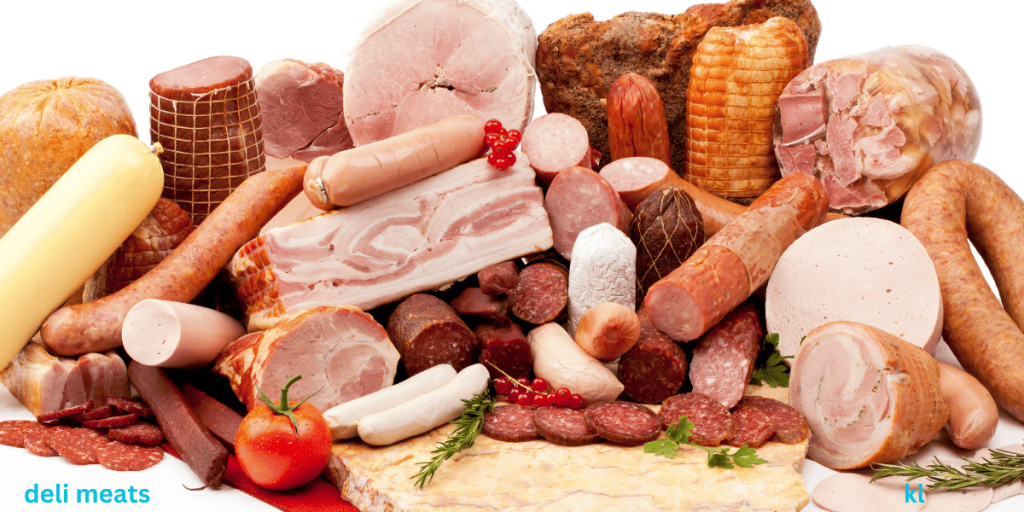
Make sure you’re staying on top of your prenatal care and talking with your doctor about any supplements you might need, especially if you’re feeling low on energy or struggling to get enough nutrients through food.
As you prep for delivery, remember to give yourself grace. This is a tough stage, and your body is working hard. Keep up with your healthy pregnancy habits, focus on a balanced diet, and stay hydrated. You’ve got this!
Superfoods for Supermoms: Nutrient-Dense Choices
When it comes to pregnancy, fueling your body with the right foods is key to supporting both your health and your baby’s development.
Essential Nutrients for a Healthy Pregnancy: Trimester by Trimester plays a vital role in ensuring that you and your baby are thriving through every stage.
Whether it was tossing leafy greens into my morning smoothie or snacking on a handful of nuts between meals, these superfoods became my go-to for ensuring I was getting the best nutrients for my growing baby. Let’s dive into some of the top superfoods for pregnancy and why they should be on your plate!
Leafy Greens: The Pregnancy Powerhouse
First up, leafy greens—think spinach, kale, and Swiss chard. These guys are absolute powerhouses when it comes to pregnancy nutrition.
Not only are they rich in iron, which is critical for keeping your energy levels up, but they’re also loaded with folic acid, which helps prevent neural tube defects in your baby. leafy greens are packed with calcium, helping to build your baby’s bones while maintaining your bone strength
Berries: Antioxidant Champions
If you’re craving something sweet, berries are where it’s at! These little gems are packed with antioxidants for pregnant women, which can help combat inflammation and support your immune system.
They’re also high in vitamin C, which helps your body absorb iron more efficiently (especially important when you’re trying to prevent anemia during pregnancy!). Plus, berries are hydrating, so they help you stay refreshed throughout the day.
Nuts and Seeds: Healthy Fats in Small Packages
For a quick and easy snack, nuts and seeds were my go-to. Not only are they a great source of healthy fats during pregnancy, but they’re also full of protein and essential minerals like magnesium. Almonds, walnuts, chia seeds—these tiny superfoods carry big benefits.
Walnuts, for instance, are an excellent source of omega-3 fatty acids, crucial for your baby’s brain development. I’d sprinkle some chia seeds into a pregnancy superfood smoothie or munch on a small handful of almonds in the afternoon for a satisfying snack.
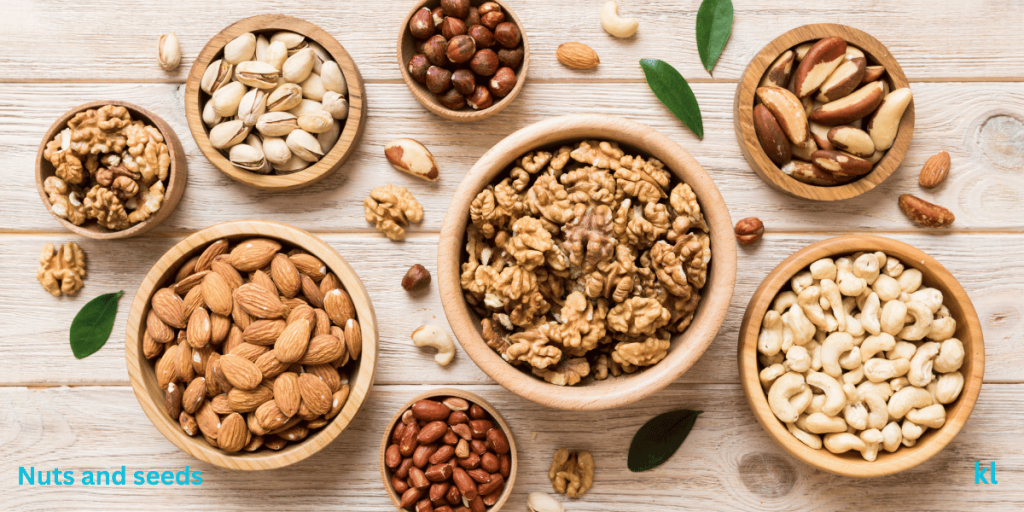
Lean Meats and Fish: Protein and Omega-3 Sources
Don’t forget about lean meats and fish! During pregnancy, your protein needs to go up, and lean meats like chicken and turkey are great sources of iron and protein without being too high in fat. If you’re a seafood fan like I am, incorporating safe fish choices like salmon can be a game-changer. Salmon is rich in DHA, an important omega-3 that supports your baby’s brain and eye development.
I know fish can be a bit tricky during pregnancy, so I always made sure to stick with safe fish consumption in pregnancy guidelines—avoiding high-mercury fish and opting for options like wild salmon or sardines, which are rich in calcium and omega-3s.
Whole Grains: Sustained Energy for Growing Bellies
Whole grains are perfect for providing sustained energy without spiking your blood sugar. Brown rice, quinoa, oats, and whole wheat bread were my staples.
Not only do they help you stay full and energized, but they’re also packed with fiber, which is a lifesaver when it comes to avoiding pregnancy-related constipation (we’ve all been there, right?).
Plus, whole grains are often iron-fortified, which is great when you’re trying to meet your increased iron needs during pregnancy. My favorite? Oatmeal topped with berries and a drizzle of honey—delicious and packed with nutrients.
Superfood Smoothies: A Quick Boost
On days when I was too tired to even think about cooking, I’d whip up a pregnancy superfood smoothie. It’s such an easy way to pack in nutrients when you’re on the go. I’d throw in some leafy greens, berries, chia seeds, and almond milk for a powerhouse drink.
And if I wanted something extra filling, I’d add a spoonful of peanut butter or a handful of oats to keep me going. There are so many pregnancy smoothie recipes out there, so don’t be afraid to experiment!
Smoothies are also great for sneaking in some extra calcium-rich dairy alternatives like almond or oat milk, perfect if you’re avoiding dairy or just want to switch things up.
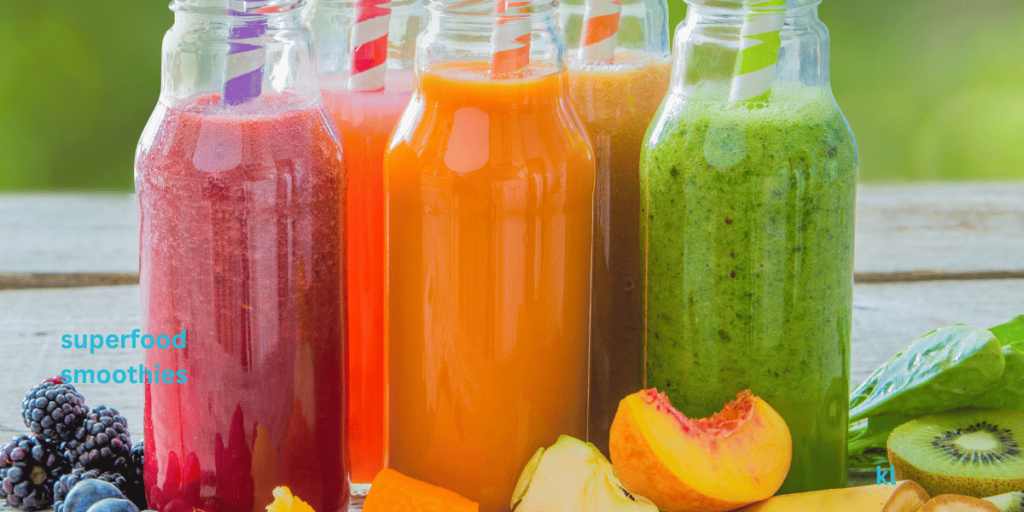
FAQs
How can a Vegetarian and Vegan Meet Nutrient Needs during Pregnancy?
If you’re vegetarian or vegan, you can still have a healthy, well-balanced pregnancy—just with a little extra planning. During pregnancy, You can lean heavily on plant-based protein sources like beans, lentils, tofu, and quinoa to meet protein needs.
It’s essential to get enough protein sources for pregnant vegetarians, so combining various plant-based foods is key to making sure you’re getting all the essential amino acids. Also, pay attention to nutrients like iron and vitamin B12, which are often found in animal products but can be supplemented through foods like fortified cereals and nutritional yeast.
Don’t forget about calcium and omega-3 fatty acids too—chia seeds, flaxseeds, and fortified plant milks are great options to ensure you’re getting these critical nutrients in a vegan pregnancy diet
How can I Manage Gestational Diabetes Through Diet during pregnancy?
Managing gestational diabetes is another hurdle some pregnant women face. I had a close friend who dealt with this, and I remember how much she had to adjust her eating habits. Controlling blood sugar is all about balance—focusing on complex carbs, plenty of fiber, and protein at every meal.
For her, having a gestational diabetes meal plan meant choosing whole grains, leafy greens, and healthy fats while avoiding sugary snacks and simple carbs like white bread.
She also had to eat smaller, more frequent meals to prevent spikes in blood sugar. Working closely with her doctor and a nutritionist helped her keep everything in check and, honestly, it became second nature after a few weeks of trial and error
What are the foods to avoid during pregnancy?
Ah, pregnancy food safety guidelines—there’s a whole list of things you can’t eat, and it can feel like a minefield sometimes. Avoiding raw or undercooked foods like sushi, deli meats, and soft cheeses can reduce your risk of foodborne illnesses like listeria and salmonella, which are particularly dangerous during pregnancy.
I had to steer clear of my favorite tuna sashimi and switch to pasteurized cheese, which, honestly, wasn’t as bad as I expected once I found good alternatives. The key here is to stay informed and, when in doubt, err on the side of caution. It’s not forever, and your baby’s health is worth the extra caution!
How can I Deal with Food Aversions and Cravings during Pregnancy?
One of the most surprising parts of pregnancy for me was how intense my food aversions and pregnancy cravings could be. One week, I was all about salty snacks, and the next, I couldn’t stand the sight of them.
If you’re experiencing this roller coaster, know that you’re not alone. Cravings can be your body’s way of telling you it needs something—whether it’s salt, sugar, or protein.
However, you have to balance those cravings with Essential Nutrients for a Healthy Pregnancy: Trimester by Trimester to make sure you’re still getting what your body and baby need.

When and How to Use Supplement Safely?
Supplements are a great way to fill in any gaps in your diet, but knowing when and how to take them is crucial. I made sure to take prenatal vitamins religiously, but sometimes I needed extra help with iron and omega-3s.
Always talk to your healthcare provider before adding any pregnancy supplements to your routine, especially if you’re managing dietary restrictions like a vegetarian pregnancy nutrition plan.
Also, some probiotics are safe and beneficial during pregnancy—helping with digestion and even supporting your immune system. Look for pregnancy-safe probiotics and always double-check with your doctor.
Navigating the different nutrient needs throughout your pregnancy might feel overwhelming, but breaking it down by trimester can help you stay focused. Each stage of pregnancy requires specific nutrients to support both your health and your baby’s development.
By making simple dietary adjustments and taking the right prenatal vitamins, you can give your baby the best possible start to life while feeling your best too.
Remember to consult your healthcare provider to ensure you’re meeting your individual needs—every pregnancy is different! Stay mindful, eat well, and embrace this incredible journey.

